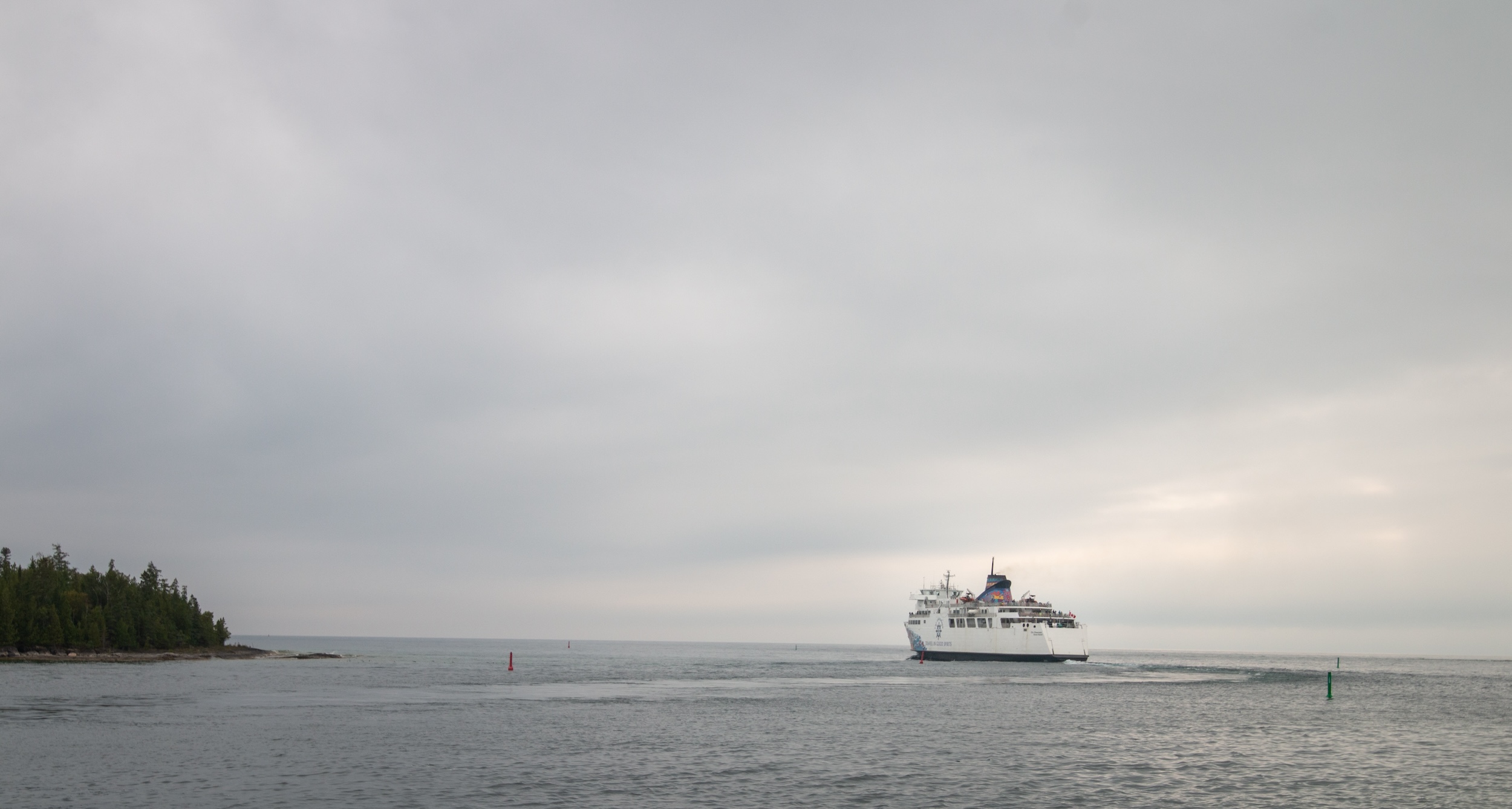
If you live in Ontario, you love the Great Lakes. They’re important in the province, but also the region, the country and even the world. Collectively, lakes Huron, Ontario, Michigan, Erie and Superior, along with the St. Lawrence River, make up the world’s largest freshwater ecosystem, containing 21 per cent of all available surface freshwater on the planet. They also support the world’s third-largest regional economy.
Which is why The Narwhal’s Ontario bureau was thrilled to become the fifth member of the Great Lakes News Collaborative, a group of news outlets working together to enhance coverage of the Great Lakes basin. Funded by the Michigan-based Charles Stewart Mott Foundation, the collaborative was established in 2020 and collectively has already achieved a 47 per cent increase in the number of Great Lakes and water-related stories published by the outlets.
The first four members — Bridge Michigan, Michigan Public, Detroit Public Television’s Great Lakes Now program and Circle of Blue — are all based in the United States, though they all recognize environmental issues affect people and nature on both sides of the border. We’re proud to be the first Canadian members of the partnership.
Every year, the group collaborates on one big project, and in 2024 it’s The Checkup: Water and Human Health in a Changing Climate.
Every outlet will be producing stories focused on this theme, which will be listed here. Check back throughout the summer as new stories get published.
People are unprepared for smoke from forest fires worsened by intense drought and heat. Brett Walton, Circle of Blue, May 14, 2024
The pesticide DDT nearly wiped out North America’s bald eagles. Communities, scientists and politicians worked hard to bring this symbolic bird back from the brink. Emma McIntosh, The Narwhal, May 21, 2024
Climate change is making the Great Lakes region warmer and stormier. That brings new health challenges from mosquitoes and viruses, while worsening existing problems with disease-carrying stormwater. As threats grow, health officials are pushing for more awareness among patients and doctors. Kelly House, Bridge Michigan, and Lester Graham, Michigan Public, May 28, 2024
Disease, pollution and habitat loss are posing significant challenges for birds across the Great Lakes. “The trends are worrisome. When we look across North America since 1970, we’ve lost an estimated, almost one third of the breeding populations of birds.” Lester Graham and Rebecca Williams, Michigan Public, May 28, 2024
In this series of audio documentaries, reporter Lester Graham and editor Rebecca Williams visited the Cornell Lab of Ornithology in Ithaca, New York to find out why Great Lakes birds are losing their habitat, dying in large from disease, and ingesting toxic chemicals, and what it means for human health. Michigan Public Radio, ongoing through summer 2024
Scientists studying unregulated “emerging contaminants” say Ontario and the federal government need a co-ordinated plan to protect our water and health. Fatima Syed, The Narwhal, June 4, 2024
Despite being on the Great Lakes, the cities of Cleveland, Chicago, Detroit, Milwaukee, Windsor, Ont., and Toronto have all been labeled urban heat islands: primarily urban areas with a lot of buildings and infrastructure that absorb and re-emit heat from the sun, creating a higher temperature than outlying areas where there is more natural landscape, like forests or water. Lisa John Rogers, Great Lakes Now, June 12, 2024.
The science behind combating the urban heat island effect, solutions to the complex problem and the role the Great Lakes play. Lisa John Rogers, Great Lakes Now, June 19, 2024.
Content for Apple News or Article only Get the inside scoop on The Narwhal’s environment and climate reporting by signing up for our free newsletter. This...
Continue reading